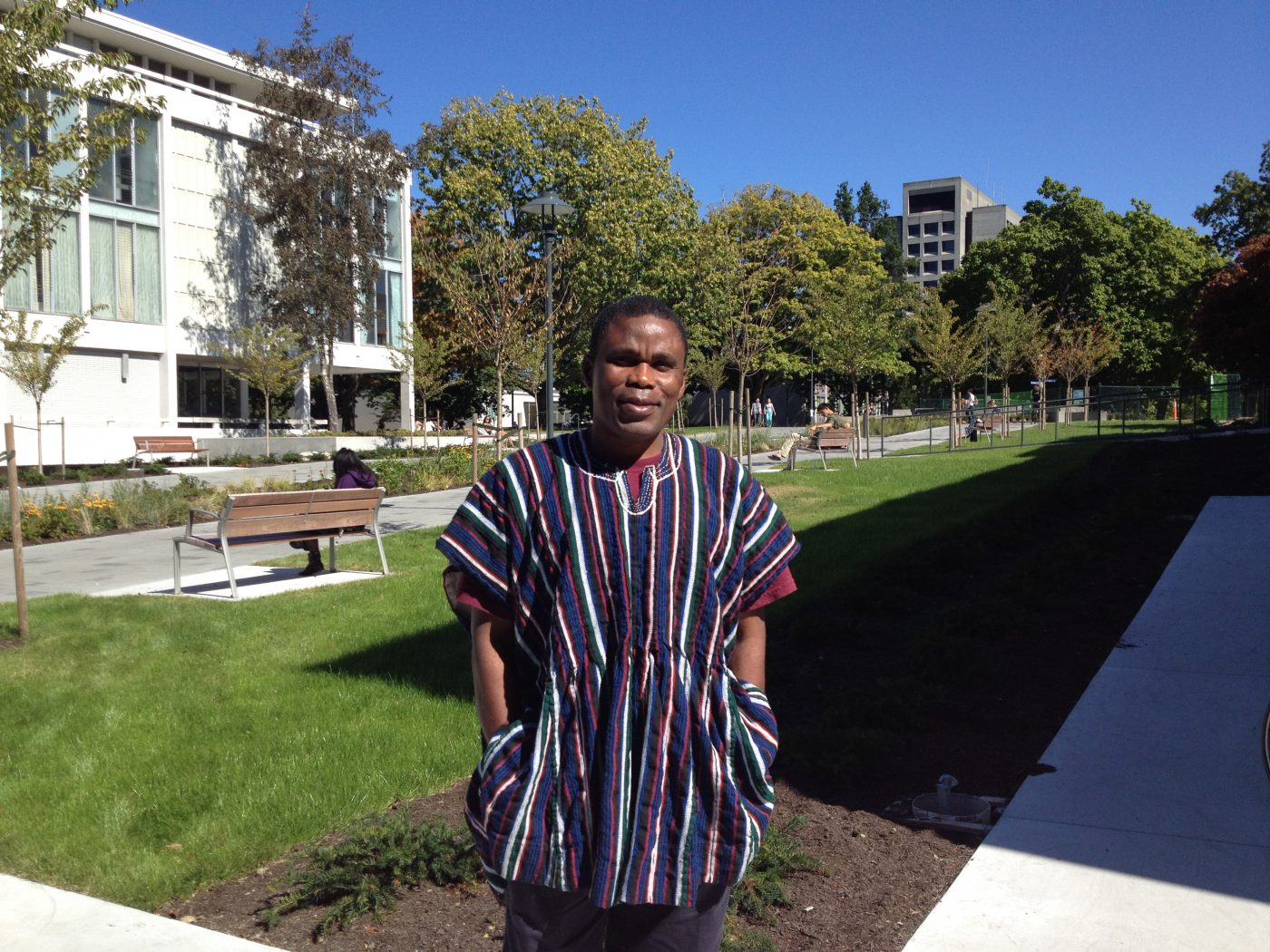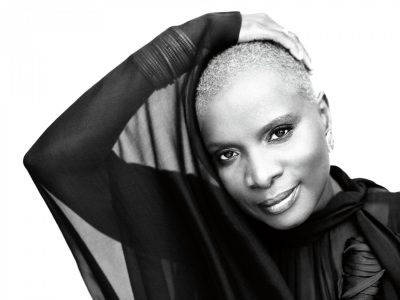- News
- Q & A with Dr. Kofi Gbolonyo, Part Two
Q & A with Dr. Kofi Gbolonyo, Part Two

In conjunction with the Chan Centre’s presentation of Angélique Kidjo on Saturday October 13 2012, we were fortunate enough to have the opportunity to interview UBC’s Dr. Kofi Gbolonyo. Dr. Gbolonyo is a Ghanaian musician and Assistant Professor of Ethnomusicology at the UBC School of Music. In Part One, he discussed the music and musical traditions of West Africa.
Here in Part Two, he talks about Angélique Kidjo’s background and musical career, as well as his own experiences with her music.
Growing up in Ghana, what was your awareness of (or experiences with) Angélique Kidjo’s music?
Kofi Gbolonyo: Kidjo’s music, from mid 80s through late 90s, was one of the few if not the pop music that emanated from Benin. I had no idea then that Kidjo was not even living in Benin at the time. Her favorite albums of mine, including “Logozo”, “Aye” and “Fifa” resonated with me and my peers primarily because of the meanings of the songs, and their association with profound Ewe/Fon proverbs, humanistic and religious philosophies—something I think Kidjo herself is aware of, and means to emphasize when she talks about some of those tracks. Secondly, music for me must have rhythm, a kinesthetically inviting rhythm, not necessarily traditional ‘West African’ but clearly danceable and invigorating. Much of Kidjo’s music has it as the core.
West Africa boasts a wealth of musical traditions and recognized musicians, including Angélique. How important is it for these artists to incorporate such traditions in their music?
KG: Music has relevance to the West African only and when it has relevance in the everyday life and culture of the people. Traditional music cannot be separated from the language, daily and historical activities of the people. So, incorporating such traditions means not only recognition and respect of who you are and what rich resources you have but also how you can continue what you have and make it accessible and meaningful to your people. It is very important for West African popular musicians to incorporate traditional music into their works. It is a symbol of identity and helps promote and validate indigenous music on a global scale and encourages traditional artists.
The most successful West African pop musicians are those who are able to finely blend traditional musical elements with foreign ones without losing either. Partly due to the vast wealth of highly developed traditional musical forms, West Africa and its modern popular music has become one of the inviting sites for new global pop musical ideas. The Africanization of global popular music appeals to local as well as international audiences. Hence the most successful type of West African popular music and musicians, including Angelique Kidjo, are those with a strong African orientation realized within the framework of international popular music practice and style. There are three main orientations of West African popular musicians—those who lean heavily on traditional music; those who tilt heavily toward Western musical traditions; and those who fall in the middle, finely and carefully blend the foreign and local elements. Angelique Kidjo, I think, falls in the third category.
Does Fon music have unique elements to it? If so, what elements of Angélique’s music reflect Fon traditions? (or other traditional West African musical practices?). What are some ways in which Angélique incorporates cultural and musical traditions of West Africa in her music?
KG: Just as any other musical tradition, Fon music has unique elements. These elements include stylistic features and principles such as rhythm, form, tonality, vocal and instrumental quality, and texture as well as linguistic and conceptual principles such as cultural ideologies, context, and function. Kidjo incorporates her Fon religious, socio-cultural humanistic principles and cultural philosophies and principles of life and communalism into her music by way of proverbial inferences and linguistic choices. Stylistically, some of her rhythmic choices, instrumentation, and vocal quality and texture could be traced, to some extent, to different Fon and West African indigenous music. Dance oriented features of her music certainly come from her Fon tradition.
Music and education are obviously great passions of yours (and ours, too). How important is music in the education of today’s youth? Do you see artistic expression/creativity as a vital component to one’s education?
KG: In my traditional culture everybody takes part in music making—where music includes dance, drama, storytelling and other artistic forms. It is an experience that I think is as natural as everyone being able to talk and walk in a community and not being labeled. If talking and walking are accepted as important social activities then music should be as well. Beside its positive social impact on the individual and society, music is a vital and effective tool in the education of the individual and society in all other spheres of human endeavor. Particularly in today’s youth and culture where social relationships and connection is reduced to an electronic device only as big as my thumb, music comes as a tool in educating the youth and as a resource to reconnect with real social life. The day the human race completely loses the ability to make and enjoy music is the day the human race loses its sanity. The importance of music in education – though clearly known now, but continuously neglected – cannot be overemphasized.
Who is your favourite musician/artist or song?
KG: While I have music that I like to listen to at particular moments and contexts, I do not have a favorite musician/artist or song. I am not even my own favorite musician.

